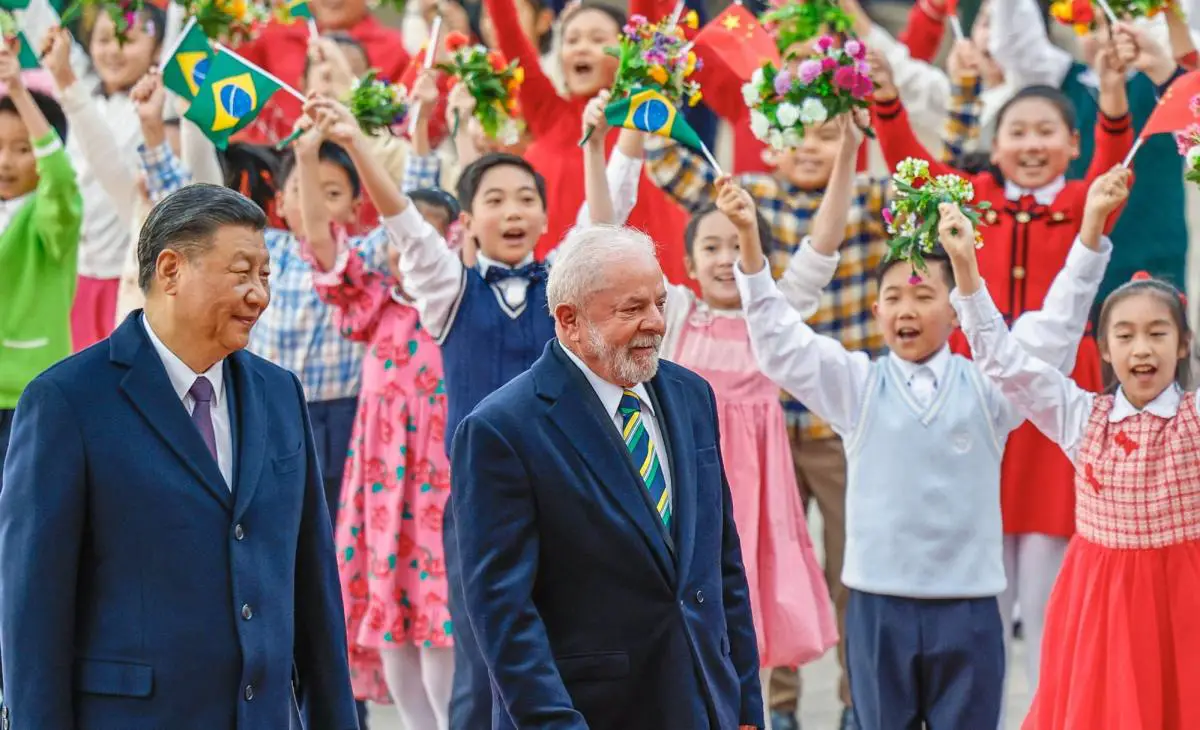The Chinese embassy in Brazil criticised US Trade Representative Katherine Tai after she recommended Brasilia “weigh the risks” before joining the Belt and Road Initiative.
Speaking on Wednesday in Sao Paulo, Tai urged Brazilian officials to evaluate the risks of joining China’s plan to grow global trade.
Brazil “should really think about what the best pathway forward is for more resilience in the Brazilian economy”, Tai said, encouraging an “objective lens” and “risk management” in assessing the trade partnership.
Do you have questions about the biggest topics and trends from around the world? Get the answers with SCMP Knowledge, our new platform of curated content with explainers, FAQs, analyses and infographics brought to you by our award-winning team.
The Chinese embassy in Brasilia fired back on Friday, calling Tai’s comments “irresponsible” and “disrespectful” and saying Brazil’s sovereignty in choosing its trading partners “should be respected”.
“How could China, as Brazil’s largest trading partner, largest export market and main source of surplus, represent a risk and not an opportunity? This view contradicts the facts and basic logic.”
Brasilia, the statement added, did not need “others to dictate who to cooperate with or what kind of partnerships to conduct”.
Brazilian Agriculture Minister Carlos Favaro also defended Brazil’s interest in the belt and road plan, saying it could help “combat trade barriers” with Western partners.
“We need to have a great relationship with the United States and the European Union, but also some protectionist measures must be fought with an expansion of trading partners,” Favaro said.
Chinese President Xi Jinping (left) and Brazil’s President Luiz Inacio Lula da Silva attend a welcome ceremony at the Great Hall of the People in Beijing in April 2023. Photo: Brazilian Presidency alt=Chinese President Xi Jinping (left) and Brazil’s President Luiz Inacio Lula da Silva attend a welcome ceremony at the Great Hall of the People in Beijing in April 2023. Photo: Brazilian Presidency>
Chinese diplomats have previously publicly rebuked US officials over attempts to discourage Brazil from joining the initiative.
In May, General Laura Richardson, commander of the US Southern Command, drew similar criticism from China after suggesting that involvement in the initiative could compromise Brazilian sovereignty.
In an interview with local newspapers, she argued, like Tai, that Brasilia should evaluate “the fine print” of the agreement, including how a country’s “sovereignty is taken away over time if [Chinese] loans are not repaid”.


Leave a Comment